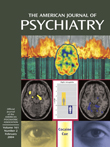The idea that neuroscience and psychotherapy share common ground is not new. After all, very soon after Ramon y Cajal had published his work on the synapse
(1), Freud was making use of that discovery as the foundation for his theory of a neurologically based psychology
(2). Since then the mind/brain debate has waged, and waged rather powerfully due in large measure to Freud’s impatience with the limits of biology. But Freud never stopped prophesying that one day biological science would prevail: “Biology is truly a land of unlimited possibilities. We may expect it to give us the most surprising information…that may be of a kind which will blow away the whole of our artificial structure of hypotheses”
(3). The separation of mind and brain, as Freud predicted, has been blown away.
In his new book The Neuroscience of Psychotherapy, Louis Cozolino, Professor of Psychology at Pepperdine University and a clinical psychologist in private practice, argues as if that debate were still waging. And for those readers who need convincing, I recommend this book. It is well written and well researched and covers a huge amount of ground. There are chapters on the history of psychotherapy and neuroscience and chapters on the evolution of the brain, including the evolution of memory and affective systems. There are also chapters on how the brain organizes experience laterally across the corpus callosum and top–down between cortical and limbic structures and chapters on the neuropsychology of attachment and the neuropsychology of disorganizing experience. Another series of chapters discuss the neuropsychology of specific psychiatric diagnoses—borderline, narcissistic, posttraumatic stress disorder—and these are the best in the book. Finally, there are chapters in which Dr. Cozolino outlines the future for the “psychotherapist as neuroscientist.”
The Neuroscience of Psychotherapy is a grand and wonderful overview. Anyone familiar with the lay of this landscape will enjoy the reexposure to these ideas. It is always nice to see what one knows and what one believes echoed in print. However, while Dr. Cozolino argues that neurobiology must be considered when doing psychotherapy, he does not offer an approach as to how a neurobiologically based psychotherapy should be conducted. There are many interesting clinical vignettes, but each is anecdotal. There is no framework, and without that frame, what we are given is an excellent overview but no basis for applying the science of neurobiology to the practice of psychotherapy. The Neuroscience of Psychotherapy eloquently serves but fails to advance an accepted argument.

